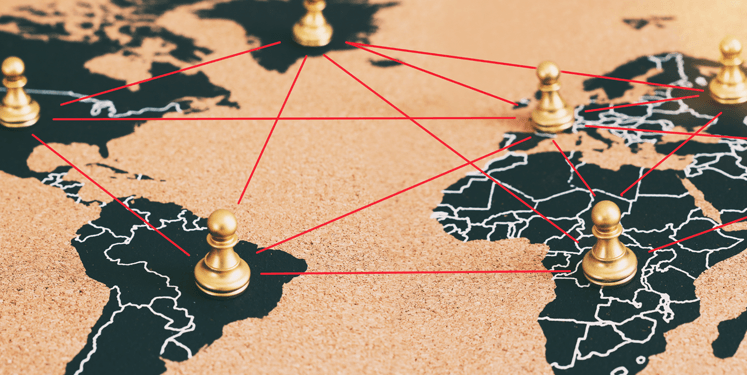Our world is a tapestry woven with intricate threads of politics, economics, and culture. At the heart of this tapestry lies geopolitics, the complex interplay of forces that shape relations between nations. Understanding geopolitical events is crucial for anyone who wants to navigate the ever-changing world around them, from students and travelers to business leaders and global citizens.
Stepping into the Labyrinth: Unveiling the Layers of Geopolitical Events
Every geopolitical event, from trade negotiations to armed conflicts, exists within a multi-layered context. Understanding these layers is key to deciphering its causes, implications, and potential outcomes:
- Historical Background: Examining historical events and relationships between nations helps understand the roots of current tensions and how past experiences shape present interactions.
- Economic Interests: Economic factors like resource access, trade agreements, and global markets play a significant role in shaping geopolitical dynamics.
- Political Systems: Understanding the internal political structures and ideologies of different nations illuminates their foreign policy decisions and responses to events.
- Cultural Influences: Religion, traditions, and social values shape national identities and influence how countries interact with each other.
- Military Power & Security Concerns: Military capabilities and national security interests play a crucial role in international relations and potential conflicts.
Navigating the Headlines: Beyond Sensationalism and Bias
In today’s fast-paced information age, staying informed about geopolitical events can be overwhelming. Here are some tips to ensure you’re navigating the news responsibly:
- Seek Diverse Perspectives: Avoid relying solely on one source of information. Seek out news outlets and analyses from different regions and with varying viewpoints.
- Question Everything: Don’t simply accept headlines at face value. Critically analyze information, ask questions, and verify facts before forming opinions.
- Look Beyond the Superficial: Pay attention to the deeper motives and nuances behind events, not just the immediate actions or reactions.
- Understand Historical Context: Remember, events rarely occur in isolation. Historical context provides crucial insights into why things are happening now.
- Engage in Respectful Dialogue: Discuss geopolitical events with others in a respectful and open-minded manner, acknowledging the complexity of the issues involved.
Becoming a More Informed Citizen: Your Role in the Global Puzzle
Understanding geopolitical events isn’t just about accumulating knowledge. It empowers you to:
- Make informed decisions: As a voter, consumer, or activist, understanding geopolitical events helps you make informed choices that align with your values.
- Engage in meaningful dialogue: You can contribute to constructive discussions about global challenges and potential solutions.
- Build empathy and understanding: By delving into the complexities of other cultures and perspectives, you foster empathy and understanding across borders.
- Promote peace and cooperation: Recognizing the interconnectedness of our world encourages you to support initiatives that promote international cooperation and peaceful conflict resolution.
Remember, geopolitical events are more than just headlines; they are the stories of nations interacting, shaping our shared future. By actively engaging with these stories, you become a more informed and responsible citizen, playing your part in creating a more peaceful and just world.

































































